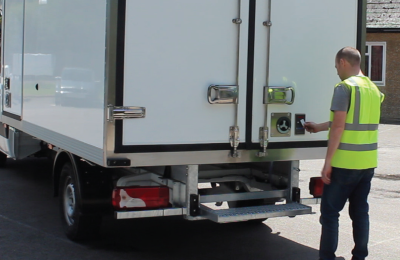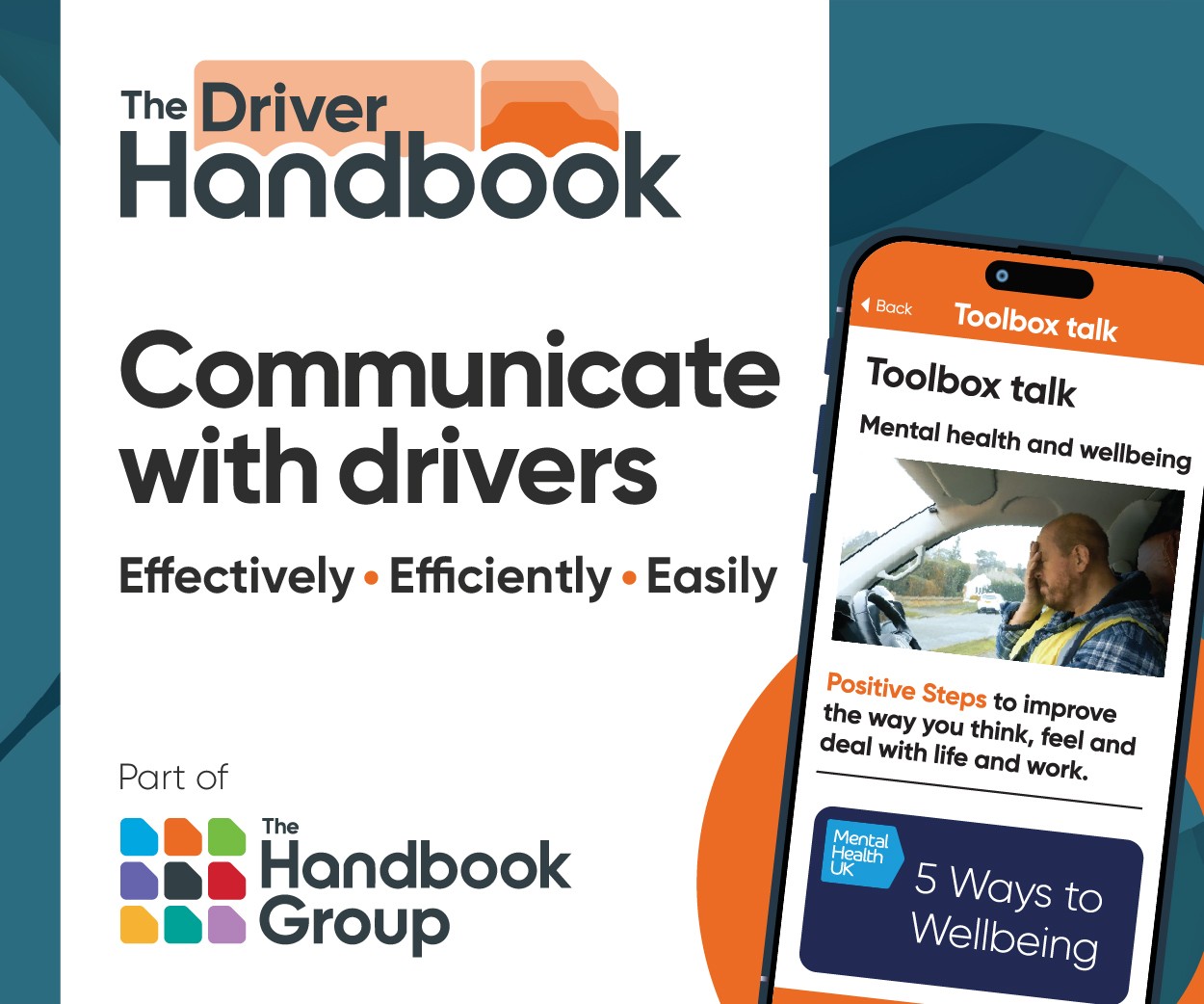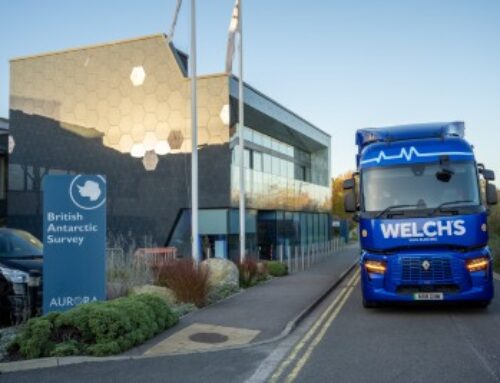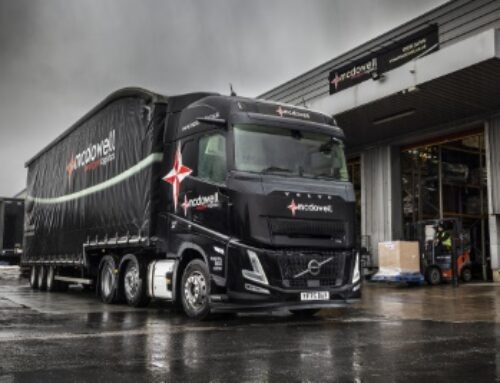Transport sector fights back as freight crime continues to bite

A vehicle equipped with an electronic locking device for additional security. Image: Maple Fleet Services
Great Britain’s traffic commissioners (TCs), the transport industry’s independent regulators, are among the latest voices to highlight growing concern around the scourge of freight crime, amidst a wider spate of action in recent weeks by business groups suggesting that a concerted fightback is now underway.
Writing in their annual report to the transport secretary published in August, the TCs threw their weight behind an earlier report by the all-party parliamentary group (APPG) for freight and logistics, which had identified a significant increase in organised crime groups targeting HGVs that had likely cost the UK economy in excess of £1 billion since 2020.
“Thefts from lorries have resulted in substantial financial damage, including lost contracts, increased insurance premiums, driver welfare challenges, and a decline in investment across the UK logistics sector,” said the TCs in their annual roundup of the challenges facing the sector.
“The traffic commissioners fully support the report’s recommendations and are committed to working in coordination with enforcement agencies to strengthen preventative measures and improve security outcomes for the industry.”
Those recommendations, originally made late last year, included the formulation of coordinated secure parking standards at truck stops; the creation of a national parking programme to increase provision of safe facilities, obviating the need to park at unlit and vulnerable locations; the launch of a national awareness campaign; and increased support and resources for law enforcement.
While these recommendations were directed at government, industry strengthened its own ties with law enforcement this summer, as transport sector business groups moved to increase cooperation with NaVCIS, the National Vehicle Crime Intelligence Service – the specialist policing unit responsible for providing information and guidance around freight crime.
In August, Logistics UK announced the establishment of an official partnership with NaVCIS which aims to assist member organisations in identifying and mitigating potential risks to vehicles and staff.
Logistics UK was also planning to host a round table on the topic in early September with representatives from the policing unit and Rachel Taylor MP, the chair of the APPG for freight and logistics.
This was due to come ahead of the second reading of Ms Taylor’s Freight Crime Bill in Parliament, which aims to introduce a specific crime code for freight theft to aid police response.
Logistics UK head of road freight policy Maddi Solloway-Price said: “Freight crime is on the rise, with goods worth more than £111 million stolen from vehicles in the past year.
 “While the commercial cost of these thefts is obviously critical, particularly for an industry such as ours which operates on particularly narrow margins, the impact on drivers’ mental health and driver retention is especially concerning to the long-term security of our member businesses and the wider supply chain, as well as the wellbeing of our drivers.”
“While the commercial cost of these thefts is obviously critical, particularly for an industry such as ours which operates on particularly narrow margins, the impact on drivers’ mental health and driver retention is especially concerning to the long-term security of our member businesses and the wider supply chain, as well as the wellbeing of our drivers.”
She explained that NaVCIS would also be participating in its autumn series of Transport Manager conferences to share knowledge and advice.
PC Michael Dawber, field intelligence officer at NaVCIS, commented: “Our work uncovers the many ways organised crime groups operate in order to steal cargo from commercial vehicles. NaVCIS is the bridge between policing and industry.
“Through our data analysis, we hope to help the industry identify potential areas of weakness in the supply chain and protect goods moving from the manufacturer to the end user.”
The news of the Logistics UK and NaVCIS partnership followed a separate announcement in July by the British International Freight Association, BIFA, of a strengthened sponsorship and collaboration with the police body.
The BIFA partnership will see the provision of financial support for NaVCIS’s work in combating vehicle-related crime, with a particular focus on freight theft and cargo security.
As part of the collaboration, NaVCIS will provide BIFA with regular intelligence briefings on trends in truck crime, national hotspots, and emerging tactics deployed by criminals. This information is then expected to be shared with BIFA’s corporate membership base.
Steve Parker, director general of BIFA, said: “Our sponsorship of NaVCIS will help to ensure that our members are kept up to date with accurate, timely intelligence…
“We also have plans to raise further awareness of NaVCIS to our members through the release of a documentary-style episode of BIFA TV. This feature-length episode will share case studies demonstrating the organisation’s work at locations such as Beaconsfield services in Buckinghamshire and the Red Lion truck stop in Northampton.”
In July, the Road Haulage Association (RHA) urged the transport sector to call for MPs to back Rachel Taylor’s measures to tackle freight crime, having created an online tool allowing operators to message MPs in support of the second reading of the Freight Crime Bill.
Declan Pang, RHA public affairs and policy director, re-emphasised the need for a specific crime code for freight crime, which he warned was likely otherwise to be under-recorded. This would differentiate criminal activity specifically targeting the freight sector from thefts from vehicles more widely, such as incidents involving passenger cars.
“The theft of hundreds of thousands of pounds of high-value goods from a lorry is recorded the same as the opportunistic theft of a phone or bag from a car,” he explained.
“This makes it extremely challenging for police to anticipate emerging trends and direct resources accordingly.
“A new crime code would improve intelligence and help officers better protect lorry drivers and their loads and vehicles from criminal gangs.”
The RHA also called for £6 million of annual funding in the autumn Budget, to help boost NaVCIS’s operations.
“Freight crime disrupts supply chains, damages businesses, drives up prices, and affects manufacturers, retailers, and ultimately, consumers,” Mr Pang continued.
“It’s a low-risk, high-reward crime, perpetrated by organised gangs so we need to change that dynamic which is why we’re calling for stiffer sentences and the creation of a specific freight crime offence. We also believe that ministers should allocate funding to NaVCIS, which is currently funded solely by the industry, to reduce freight crime and its impact on people and the economy.”
Paul Nunn, marketing manager at vehicle security specialist Maple Fleet Services, told Transport Operator: “Freight crime is not a new challenge, yet the industry continues to debate many of the same issues we have faced for decades – most notably, the shortage of secure parking and the limited resources available to tackle what remains a multi-million-pound problem.”
He said the proposed introduction of a specific freight crime code was “a positive step” and “representative of a shift in attitudes towards addressing the issue”.
“Criminal gangs are highly organised, they understand supply chains, where opportunities exist and how to exploit those vulnerabilities,” he continued.
“It is not, as some may perceive, only high-value cargo that is at risk; as such we are seeing more operators take proactive steps to protect their vehicles and drivers, investing in physical security measures and access control to safeguard their operations.”














